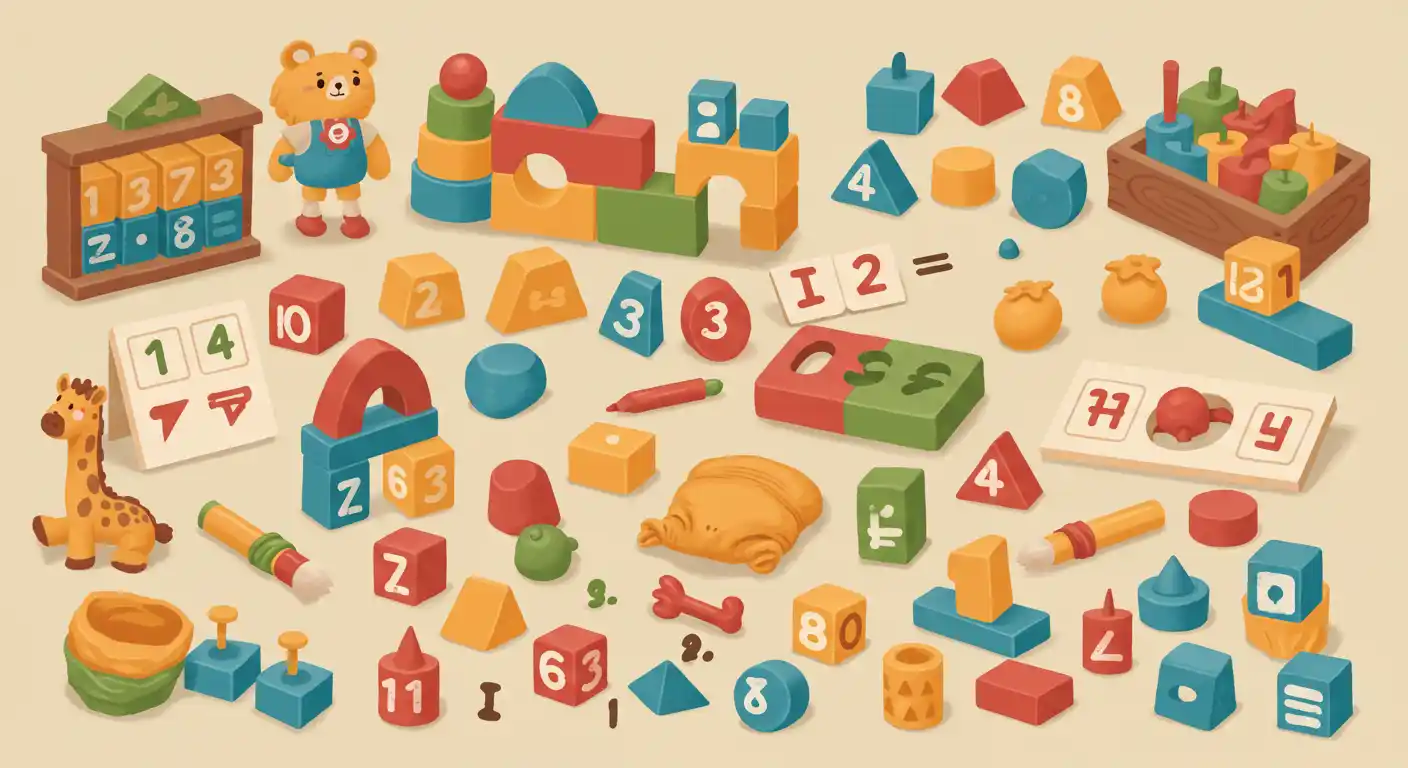Preschool math concepts help develop children’s number sense and lay the foundation for basic math skills. During this period, children learn to recognize numbers, compare objects by grouping them, and perform simple sorting tasks. Supported by fun games, songs, and visual materials, this education makes the learning process enjoyable for children. Teachers capture children’s attention by stimulating their curiosity and relating mathematical concepts to everyday life.
Preschool math activities help children develop problem-solving skills and support their logical thinking abilities. Exercises focusing on concepts such as color, shape, and size make it easier for children to perceive their surroundings. Examples from daily life are used to help children concretize the information they learn; for example, counting toys, sorting Legos by color, or playing a simple grocery shopping game are activities that capture their interest. During these activities, children are given the opportunity to learn at their own pace, which boosts their self-confidence and helps them develop a positive attitude toward learning. In addition, group work supports socialization skills and instills a culture of working together. Regular math activities like these help children become more prepared for elementary school.
Preschool Math Games
Preschool math games make it easier for children to learn numbers and use them in everyday life. These games reinforce children’s understanding of the concept of numbers and develop their logical thinking skills. In game-based activities, children first learn to count objects, then move on to simple sorting and matching activities. Colorful materials and visual aids capture children’s attention and encourage their active participation in the process.
Number recognition activities play an important role in these activities. Children are taught to recognize numbers both visually and aurally. For example, rhythmic songs and rhymes reinforce the skill of counting. Math games not only support cognitive development, but also develop children’s social skills. Children who play with their friends learn to cooperate, wait their turn, and share.
- Creating number groups with colored blocks
- Organizing object counting competitions
- Playing simple card matching games
- Singing counting songs in groups
These types of games teach children the importance of group work and make the learning process enjoyable. When practiced regularly, it makes it easier to prepare for elementary school and fosters a positive attitude toward mathematical concepts.

Preschool Math Book
The preschool math book supports children in learning concepts in a structured way. The matching activities in the books develop children’s attention and visual perception skills. Matching different shapes and objects, recognizing colors, and noticing similarities supports their mental development. At the same time, the comparisons made on the pages teach children to see differences and strengthen their comparison skills.
These books offer children a step-by-step structure. Starting with counting activities, children then learn simple addition and subtraction. Fun visuals, stickers, and coloring pages capture children’s interest. The books offer activities that teachers can use in the classroom and parents can use at home, bringing order to the learning process.
- Shape and number matching activities
- Activities related to the concept of big and small
- Simple addition and subtraction problems
- End-of-page assessment questions
This allows for regular monitoring of children’s development and ensures that any gaps in their knowledge are filled in a timely manner. Preschool book activities accelerate children’s adaptation to elementary school and help them develop a positive attitude towards mathematics.
